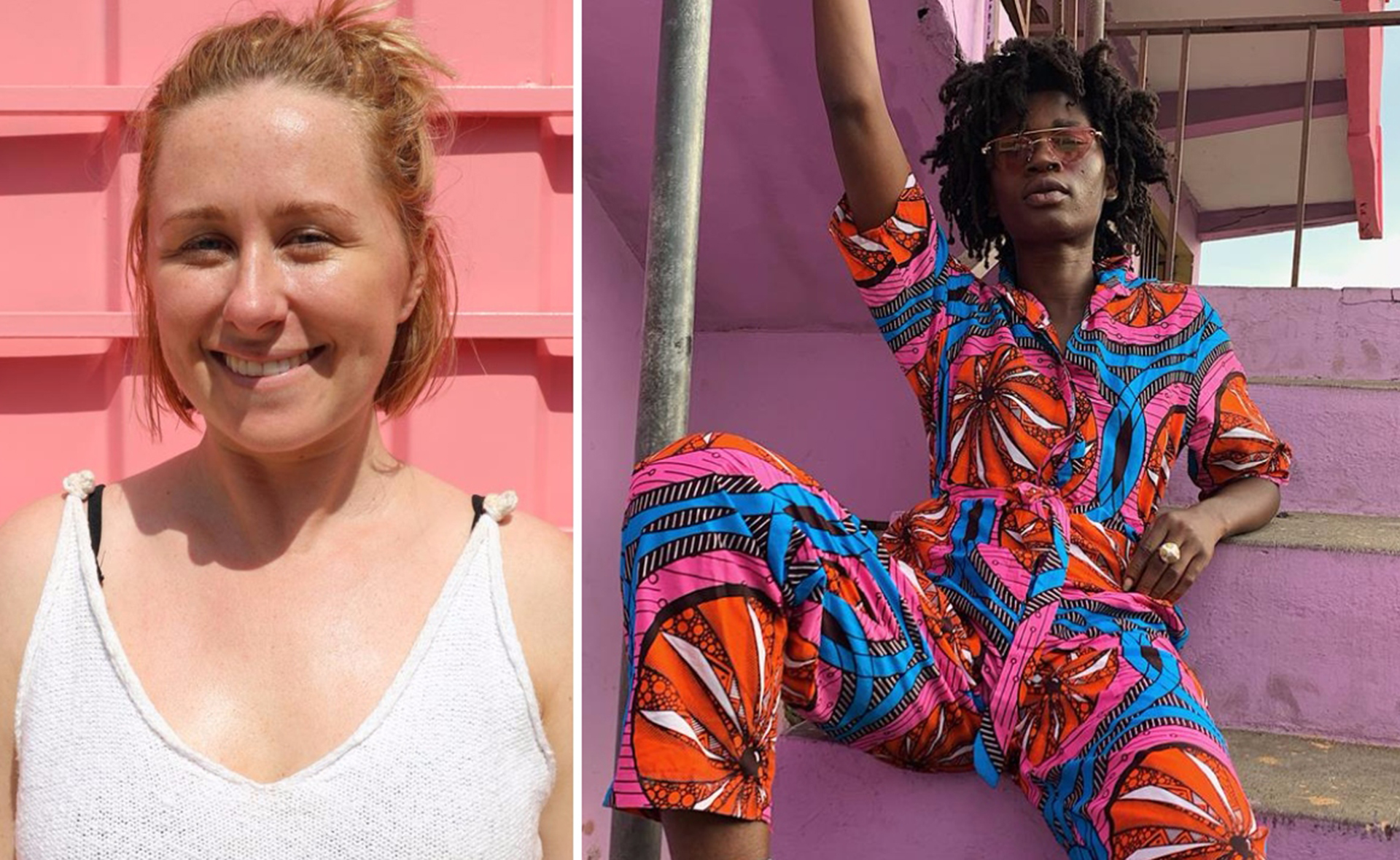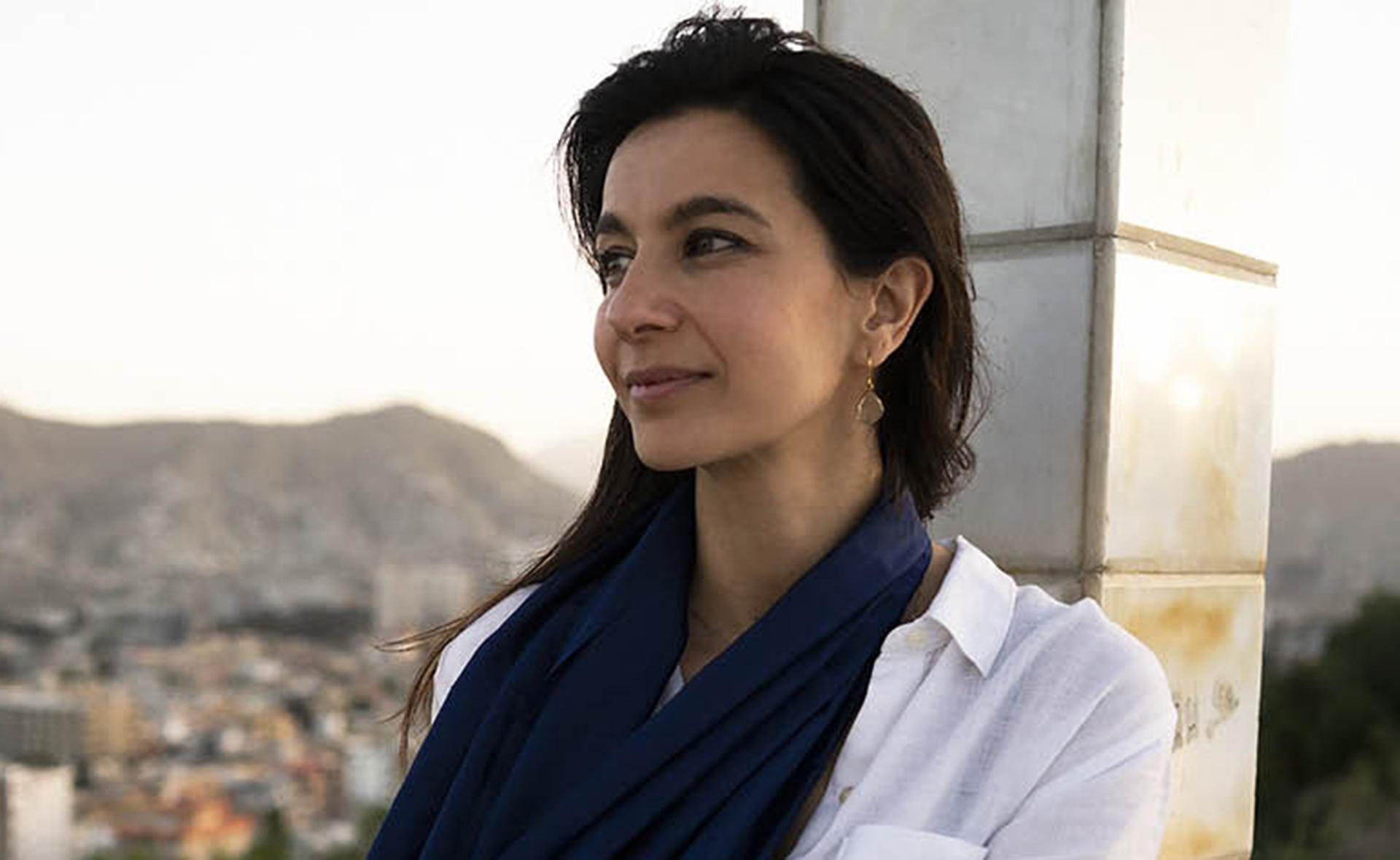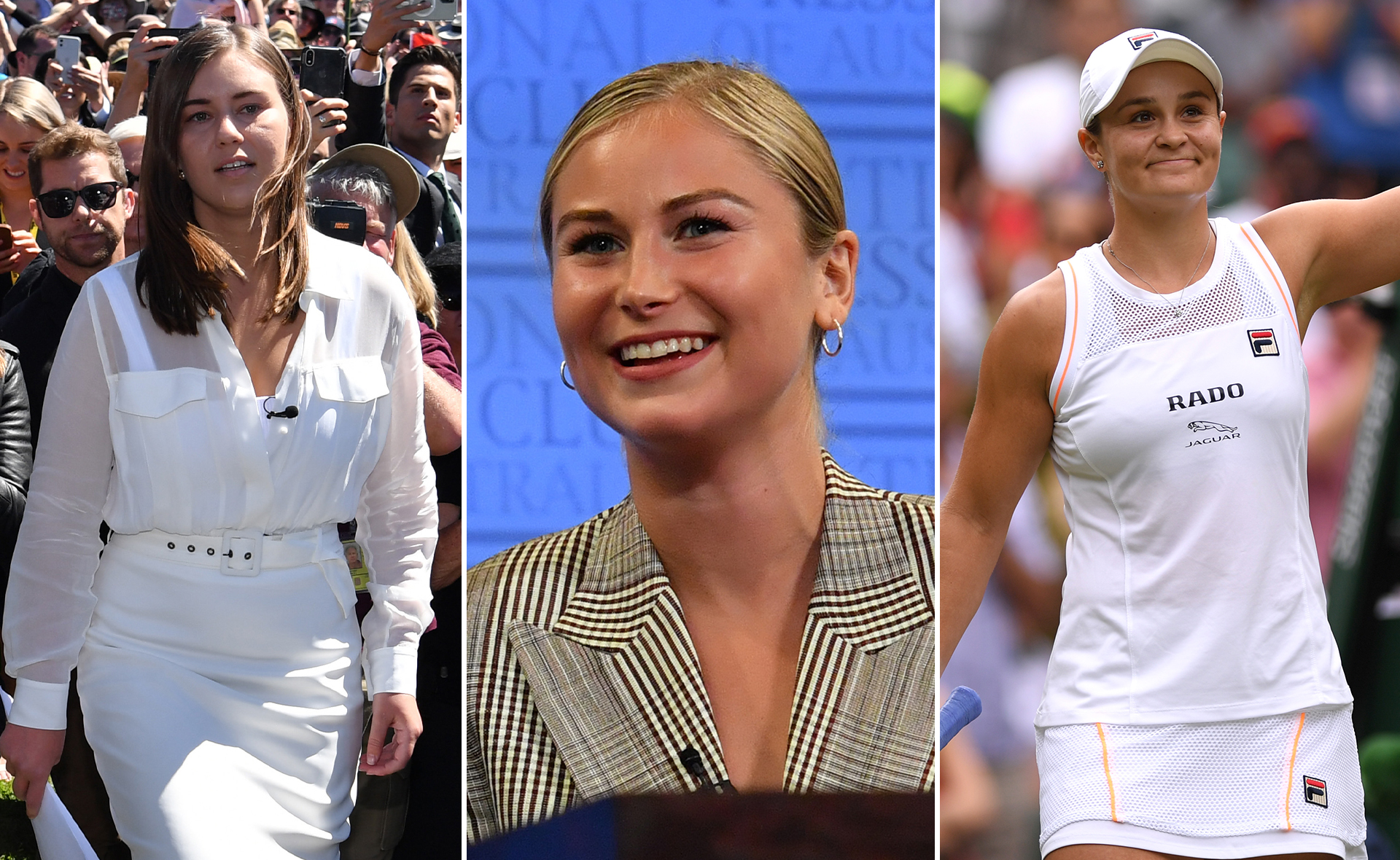This year, some of Australia’s most extraordinary leaders join us to judge The Australian Women’s Weekly Women of the Future Awards.
As entries come in, they share stories of courage, perseverance and the advice that made them who they are.
Yasmin Poole: Youth Advocate and Plan International Australia Ambassador

Yasmine Poole, Speaker, Writer and Youth Advocate.
(Nicole Reed)Yasmin Poole is an influential speaker, writer and youth advocate. She sits on the boards of OzHarvest and YWCA Australia and this year, the Martin Luther King Jr Centre named Yasmin its Youth Influencer of the Year.
Why is it more important than ever for young women to stand up and be heard?
It couldn’t be a more important time. In light of everything that’s happened in the past year and a half, with the pandemic, the story of Brittany Higgins stepping forward and the movement of women calling for decision-makers to hear our voices, it is absolutely a crucial time to make noise and to show all of Australia that our voices matter and count.
As we move forward through these events, we all need to think about what we need to do differently. Considering all the massive change we’ve experienced, it’s a really powerful opportunity to demand better.
What is one of the achievements you’re most proud of?
Receiving the Youth Influencer of the Year award from the Martin Luther King Jr Centre was something I could never, ever have anticipated. Being able to speak about my work around young women of colour here in Australia to individuals like Bernice King, who is the daughter of Martin Luther King … it’s hard to describe exactly what that feels like.
To go through high school learning about everything Martin Luther King did around civil rights in the US and to realise my work was having an international effect felt amazing.
I think it really was a reminder to the young version of me that this work does matter and that it is being heard. Having the reassurance that people are listening motivates me to continue doing what I’m doing around young women and ensuring they have a seat at the table too.
Julie Bishop: Australian National University Chancellor and Former Foreign Minister

The Hon. Julie Bishop, Chancellor Australian National University, Former Foreign Minister of Australia.
(Russell James)Julie Bishop served as the federal member for the WA seat of Curtin for 21 years, as Deputy Leader of the Liberal Party for 11 years and as Minister for Foreign Affairs for five years, during which she actively supported women’s initiatives through Australia’s foreign aid program. Julie is Chair of the Prince’s Trust in Australia.
Can you share a time when you’ve benefited from a mentor’s support?
I’ve had many mentors throughout my professional career, but I guess my mother was a source of great inspiration and support and mentorship for me. She impressed upon me that it was not necessary to limit my ambitions, and to dream big and aim high.
When have you had to find the strength to be brave?
When I was Foreign Minister, there were a number of times when I feared for my physical safety. We’re seeing the scenes from Afghanistan at present. I was in Kabul after a car bomb had gone off just outside where our troops were stationed and there was great concern about me being
in Kabul at that time.
Then, being in Baghdad in Iraq, when car bombs were going off just outside the embassy where we were staying. While I felt somewhat concerned about my safety, I always knew I was in the best of care with the Australian defence and embassy personnel and consular staff who were looking after me.
What was the greatest lesson you learned when you were starting out?
I learned not to let others define who I am and what I can achieve. To not let others put limits on my ambitions.
I learned that I should set my own high standards and then work hard to achieve them. There are always people who will set benchmarks or standards for you that they couldn’t meet themselves.
Narelda Jacobs: Network 10 presenter and journalist

Narelda Jacobs, Presenter, 10 News First and Studio 10.
(Getty)Narelda serves as a patron for Motor Neurone Disease Association WA and is a Disability Services Commission “Count Me In” ambassador.
Why is it more important than ever for young women to stand up and be heard?
When I think back to when I was starting out, we saw a lot of people in suits. Every time a man in a suit walked in, you thought, they must be the boss, or they must know what they’re talking about.
Then women started coming in as leaders. It was a really refreshing change to the way things were run and the ideas that were brought in. The world has come a long way since I started my working life, and it’s a really exciting time to be in the world and be a part of that change.
What is the greatest lesson you learned as a young woman?
The biggest lesson is don’t underestimate anyone. How many times have we been in a room where the best idea has come from the person you would least think? That’s where leadership comes from, to be able to break the mould. As women, and as young women, we are the other side of that.
We’re the ones being underestimated, and I love watching the moment when the penny drops, where the people you’re with realise, ‘Ah, I’ve underestimated you’. That is the biggest lesson because if you treat everyone like their ideas are worthy, and they could change the world, they will change the world.
Tanya Plibersek: Federal Shadow Minister for Education and Women

Tanya Plibersek MP, Shadow Minister for Education, Shadow Minister for Women, Federal Member for Sydney.
(Peter Brew-Bevan)Tanya was elected to federal parliament in 1998 and served as Deputy Opposition Leader from 2013 to 2019. She was a cabinet minister in the Rudd and Gillard governments. Her portfolios included Health, Housing, Human Services and the Status of Women.
Why is it more important than ever for young women to stand up and be heard?
It’s really important for young women to take on leadership positions because we know organisations do better when they’re more representative of the Australian community. Young women have so much to contribute to our society, to our economy, to our community.
There are barriers there. Sometimes the biggest barrier is having the confidence to give it a go. Awards like this are fantastic because they encourage young women to roll the dice and then they back the people who are giving it a go.
Can you share a time in your life when you benefited from mentorship?
I’ve been really lucky all through my life. When I was just a teenager, I was at an event for International Year of Youth and I was speaking on behalf of my school when a lady walked up to me and said, ‘I really agreed with what you said and I think you should consider joining the Australian Labor Party’.
That woman was a local councillor, Hazel Wilson, and I did. I joined the Australian Labor Party, and I would never have been a member of parliament or have done any of the other things that I’ve been lucky enough to achieve without Hazel seeing something in me that she liked and encouraging me.
Nicole Byers: Editor-in-Chief of The Australian Women’s Weekly and group Publisher Women’s Lifestyle & Food at Are Media

Editor-in-Chief of The Australian Women’s Weekly and group Publisher Women’s Lifestyle & Food at Are Media.
(Julie Adams)During her 20-plus years in the media Nicole has contributed to and helmed some of the country’s best-loved publications.
Why is it more important than ever for young women to stand up and be heard?
It feels like the world is at a massive crossroads. The pandemic has shifted things dramatically and, unfortunately, we know it is women who are being hardest hit economically.
What I would love to see is the great momentum gathered over the past 12 months or so – where we saw women taking to the streets, having their voices heard and rattling the cages of big institutions like parliament and private schools – become a catalyst for real and meaningful change.
What is the greatest lesson you learned when you were starting out?
For me, letting go of fear was the biggest lesson I had to learn. To stop playing it safe and have a crack. Self-doubt can be crippling, but once I learned to silence, or at least quieten, my inner critic I stopped letting every setback or mistake (and there have been a few!) derail me.
It was only then that I started to enjoy the kind of professional and personal happiness I’d always dreamt of.
Caterina Nesci: Director of ESG and International Partnerships at La Trobe Financial

Caterina Nesci, Director of ESG and International Partnerships at La Trobe Financial.
(Gavin Blue Photography)During her 10 years at La Trobe Financial, Caterina has helped build the brand at La Trobe Financial as the former Head of Marketing and has recently been appointed to build the firm’s Environmental, Social and Governance (ESG) credentials. She is also the Head of La Trobe Financial’s Charitable Foundation.
What are the greatest barriers young women face today?
I’m learning more and more each day that we think there are barriers, but when you’re good at what you do and believe in what you’re doing, those barriers seem to disappear. There are people around you who want you to succeed.
So, it may be that the bigger thing is to surround yourself with people who will help you grow so you can be your best and achieve your dreams. People really want others to succeed, and they want to help those who are courageous enough to try.
What is the greatest lesson you learned as a young woman?
Whenever you take risks, your gut feeling will help you. It helps you build the confidence you need to get through the journey. It also doesn’t matter if you don’t succeed at first. Keep trying. It’s important for women to take chances and make their dreams come true.
Ita Buttrose: AC OBE Chair of the ABC

Ita Buttrose, AC, OBE, Chair of the ABC.
(Corrie Bond)The 2013 Australian of the Year, Ita Buttrose is a media trailblazer, businesswoman and bestselling author. She is a committed community and welfare contributor and health advocate, including as an ambassador for The Big O.
Why were you so passionate about joining us this year?
I welcome the opportunity to encourage women to make a difference. These are women who have a big dream and they go after it, and that is inspirational for everyone else.
Can you share a special memory from your time with the Women of the Future Awards?
I’m always amazed by the incredible projects these women are doing. It’s very exciting. A researcher, Georgia Richards, was the 2016 winner. Her aim was to improve the quality of life for people with chronic pain, especially Australian military veterans.
I’m a great believer in research and encouraging research. It’s wonderful that this prize allows researchers to do their work, if they’re lucky enough to win.
What is the achievement in your own life that you are most proud of?
Well, my children, of course! The next achievement I’m most proud of is joining The Australian Women’s Weekly when I was 15 years old. It was the best decision I ever made. I started as low as you can, as a copy girl, which means I was a messenger.
However, I was influenced and inspired by the talented women at The Weekly, especially the esteemed editor, Mrs Esmé Fenston. I realised I could go further than I ever imagined, and they encouraged me to set my sights high. I’m also very proud of my current position as Chair of the ABC.
The Australian Women’s Weekly Women of the Future Awards champion young women aged 18 to 34 who want to make their mark on the world.
If you are such a woman, or you know such a woman, the opportunities that these Awards provide could change your life – and the lives of those your work touches.
Entries are open now – click here for all the details.


